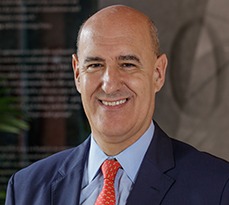
There is no greater purpose for a business school, and particularly one in a fabled 800-year-old university, than to apply our knowledge and teachings to address important global issues in order to better society.
Universities play key role in knowledge transfer
Cambridge Judge Business School is thus very proud to pioneer the Regulatory Genome Project (RGP), an ambitious initiative to reduce fragmentation in how information about regulatory requirements is shared globally – to benefit companies, regulators and individuals around the world.
This project serves as a crucial bridge between cutting-edge research at Cambridge Judge and demonstrable social and economic impact, underscoring the crucial role that universities play in transferring their knowledge and intellectual property far beyond the walls of academia to every corner of our society, culture and economic life.
A collaboration between Cambridge Judge Business School and RegGenome
The RGP is a collaboration between Cambridge Judge Business School and RegGenome, a spin-out company from the University of Cambridge. The Project supports the adoption of the Cambridge Regulatory Genome, an open information structure being developed by the Business School in collaboration with regulators. This structure is designed for machine learning and enables regulatory requirements to be organised and compared across jurisdictions, thus helping to level the playing field among regulators in both mature and emerging economies.
RegGenome has been licensed by the University to create its own data layer on top of the Cambridge Regulatory Genome, and it is building a repository of machine-readable regulatory requirements. RegGenome has just announced completion of a $6m seed funding round led by Evolution Equity Partners with participation from AlbionVC, Cambridge Enterprise, and Mastercard.
You may remember the sports fantasy movie Field of Dreams, in which a baseball field was carved out of an Iowa cornfield in the belief that: “If you build it, they will come”. But regulation is very different from sport, so building the regulatory genome requires the equally important tasks of developing and supporting its use in public and private settings around the world, and this is why Cambridge Judge has joined with RegGenome to forge this unique public-private project.
Modelled after Human Genome Project
The choice of the Regulatory Genome Project’s name was no accident: it was modelled after the ground-breaking Human Genome Project, a transformational programme inspired by the scientific and commercial innovation that followed the collective effort to map and understand the human genome – the name given to all human genes.
Similarly, the Regulatory Genome Project aims to help society keep track and make sense of the vast body of regulatory information around the world. Such information is exploding in the digital age at a dizzying pace, making it difficult for policymakers and organisations to keep up with this burgeoning body of information through human brainpower alone. This in turn impedes policymaking and makes it difficult to keep up with and follow this cascade of new and existing regulation.
Cambridge Judge is very proud that the seeds of the RGP were planted in one of our research centres, the Cambridge Centre for Alternative Finance. The centre’s RegSimple Project developed a software tool (RegSimple) to allow fintech firms a simple way to understand their regulatory obligations in various countries. Through this project, researchers at the business school identified a structural problem that was hindering policymakers and firms alike: the lack of a standardised information structure representing regulatory information in a machine-readable form.
Developing set of taxonomies
So, the RGP set out to develop a set of taxonomies that create an information structure that enables the organisation of regulatory content, thus making it machine-readable, with the first set comprising such areas as cybersecurity, data protection, environment and cryptocurrencies. Many more taxonomies, continually updated, will follow this initial tranche in the months and years ahead.
The RGP is a signature initiative for Cambridge Judge Business School and for me personally in my first year as Dean. Inside the business school we have long known the immense value of the knowledge of our faculty and research centres, and we are very excited how this project unlocks that knowledge and know-how with global practical implications.


